
Some people wear their insecurity on their sleeves. Others hide it behind charm, jokes, or silence. But over time, certain habits begin to show. Not always loud or obvious—but persistent, telling signs that someone doesn’t feel steady in who they are. These everyday habits can quietly reveal more than someone intends.
Constantly fishing for compliments.
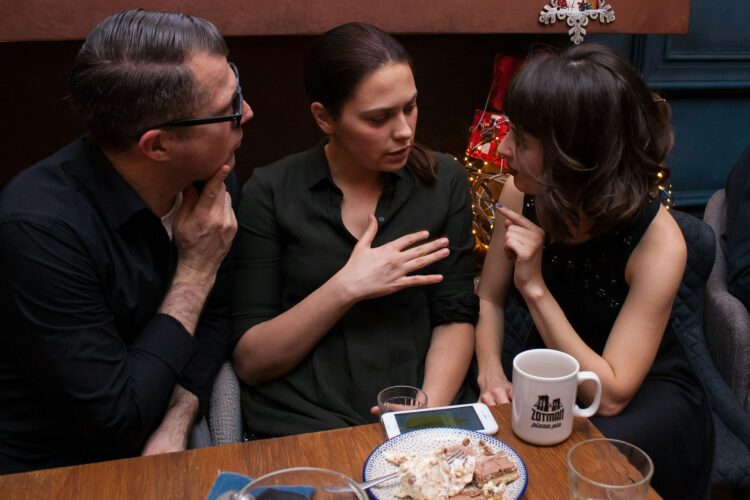
They’ll mention their appearance, achievements, or efforts in a way that begs for reassurance. Not once or twice—again and again. It’s less about vanity and more about a deep need to hear they’re enough. If compliments feel like oxygen to someone, and silence makes them spiral, there’s usually insecurity hiding behind the flattery.
Bragging that doesn’t quite match the moment.

It’s not the confidence that throws you off, but the timing. Talking about their car during someone else’s story. Mentioning income in casual conversation. Overcompensating isn’t always about ego; sometimes it’s about trying to prove worth. When someone keeps trying to show how “impressive” they are, it’s often because they fear being overlooked.
Over-apologizing for everything.

They say “sorry” when it’s not needed, like when you bump into them, when they speak, even when they ask a simple question. It’s a reflex, not politeness. It reveals someone who’s afraid to take up space, who constantly second-guesses whether they’re a burden. Underneath it, there’s usually a fear of rejection or disapproval.
Needing to one-up every story.

You talk about your vacation, they talk about theirs, but louder, longer, and better. It’s not always mean-spirited. Sometimes, it’s just someone trying desperately to feel equal, or above, so they don’t feel small. Insecurity often hides behind the need to top others, even when no one’s keeping score.
Avoiding eye contact during conversations.

Shifting eyes, staring at the ground, or scanning the room while talking—it’s more than just shyness. It can signal discomfort with being seen, as if meeting someone’s gaze feels too vulnerable. For many insecure people, holding eye contact feels like exposure, like being caught before they’ve had a chance to cover up their flaws.
Picking themselves apart in front of others.

They’ll point out their “bad” angles in photos, make jokes about their body, or say things like, “I know I look terrible today.” It’s not always humor. It can also be preemptive defense. If they insult themselves first, it feels safer than waiting for someone else to do it. It’s a coping habit, rooted in self-doubt.
Asking for permission instead of making decisions.

They don’t say, “Let’s do this.” They say, “Is it okay if we…?” or “Do you think it’s fine if I…?” Even with small things, they defer, check, and hesitate. Being polite isn’t the whole story. It can come from a fear of being wrong, taking the lead, or standing by a decision that might be judged.”
Taking criticism way too personally.

Even gentle feedback can feel like an attack. They shut down, get defensive, or replay the comment long after it’s said. What seems like ego is often just insecurity. It’s the feeling of being exposed or not good enough. Even a helpful suggestion can feel like proof of failure.
Oversharing too quickly.

You meet them once and within minutes they’re spilling deeply personal stories. While openness can be a strength, this kind of unloading is often a search for validation. It’s a way of fast-tracking connection, hoping that revealing their wounds early will earn quick acceptance or sympathy before they’re judged.
Changing personalities depending on the room.
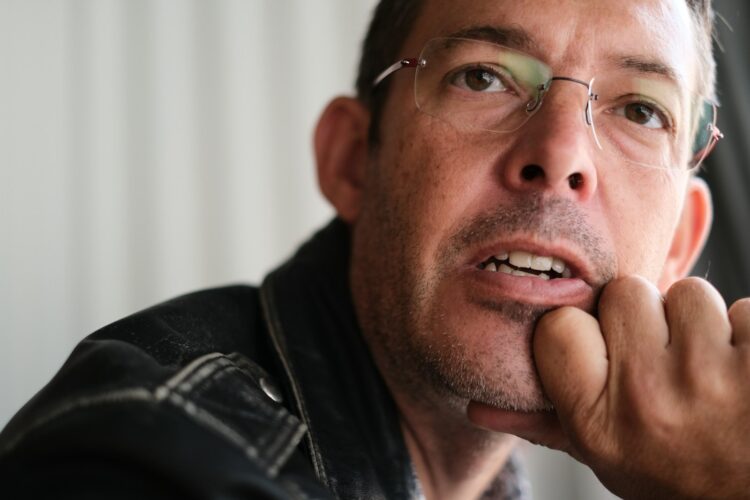
They’re bubbly in one setting, guarded in another, and overly agreeable elsewhere. What looks like adaptability is often fear. When someone isn’t secure in who they are, they change based on what they think others expect. It’s a survival habit, not a conscious choice, and it leaves them drained.
Clinging tightly to relationships.

They’ll cancel plans, ignore boundaries, or get overly attached quickly—not out of love, but fear. Fear of being left, replaced, or not being enough. They might call or text constantly just to check if they’re still wanted. Underneath it all is a deep worry that they’re too easy to walk away from.
Being overly defensive, even when no one’s attacking.
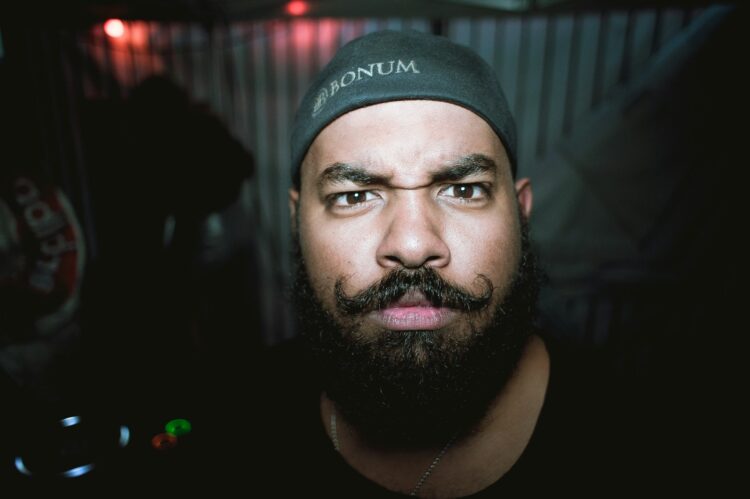
You ask a question, and they hear an accusation. You make a suggestion, and they react like it’s an insult. For insecure people, the world can feel like it’s constantly judging them. Even neutral conversations get filtered through a lens of self-doubt, turning ordinary moments into personal battles.
Making every joke at their own expense.

They’re funny, sharp, and always the first to poke fun at themselves. It keeps things light, but also keeps people from digging deeper. Self-deprecating humor is often a shield. If they make fun of their flaws first, they control the narrative. But behind the laughs is often someone who doesn’t believe they’re worth defending.
Seeking constant reassurance in relationships.

“Are you mad at me?” “Do you still like me?” “Was that okay?” They ask more than most—not because they don’t trust you, but because they don’t trust themselves. Insecure people often doubt their place in someone’s life, and unless they hear it directly, their mind fills in the worst-case scenario.
Downplaying their achievements.

They’ll brush off compliments, change the subject, or say things like ‘It wasn’t a big deal.’ This isn’t humility. It’s discomfort with being seen or acknowledged. Deep down, they don’t believe they deserve praise. They worry that if they acknowledge success, someone might call them out as a fraud. So they shrink instead.
They constantly check who’s viewed their stories.
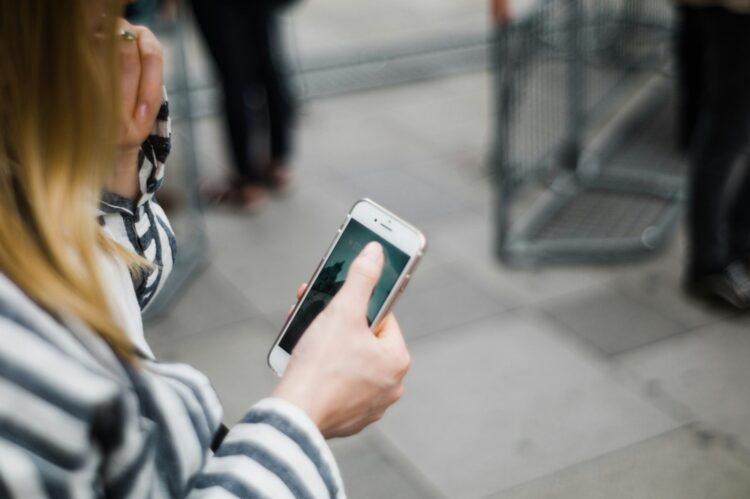
When someone’s confidence is shaky, social media becomes a mirror. They scroll not for fun, but to see if a certain person viewed their post or reacted to their story. They track it like it means something bigger—like proof they still matter. But this habit doesn’t come from joy; it’s driven by the need for validation.
They turn every compliment into a joke.

A simple compliment, like on how they look or something they did rarely lands without a deflection. They’ll laugh it off, change the subject, or make a self-deprecating comment. It’s not that they don’t like hearing it—it’s that they can’t believe it’s true. Joking becomes a shield, keeping praise at a safe distance so they never have to admit they crave it, or worse, fear they don’t deserve it.
They compare themselves to others constantly.

It doesn’t matter how well they’re doing. They’re always measuring themselves against someone else. Someone thinner. Richer. Smarter. Happier. Even in moments that should feel like a win, they find someone who seems to be doing it better. They scroll, compare, and come up short in their own mind.
They fish for reassurance.

It starts subtly. “Do I look okay?” “You sure you’re not mad?” “I’m probably being annoying, huh?” What seems like manipulation can actually be fear and uncertainty. They need someone to tell them they’re fine, still wanted, still good enough. The questions come from fear, not neediness. They’re trying to patch up a crack that keeps reappearing, even if no one else can see it.
They over-explain everything.

They don’t simply say no. They offer a full backstory, a list of reasons, and an apology just in case. It’s not excessive politeness. It’s fear of judgment. They feel they have to explain everything, because the idea of being accepted without justification feels too risky.
They say yes to everything.

They agree before thinking. Take on things they don’t want to do. Show up when they’re exhausted. Insecurity convinces them that saying no will make people walk away, so they choose burnout over rejection. They want to be liked so badly that they forget to protect themselves. Their calendar says “helpful,” but their heart says “please don’t leave me.”
They avoid taking credit.

When praised for a project or idea, they quickly mention the team, downplay their role, or say they just got lucky. Part of it might be modesty, but often, it’s disbelief. They’ve internalized the idea that their success can’t be fully real, so they hand it off to someone else. It’s safer than owning something they secretly feel unworthy of.
They obsess over how they’re perceived.
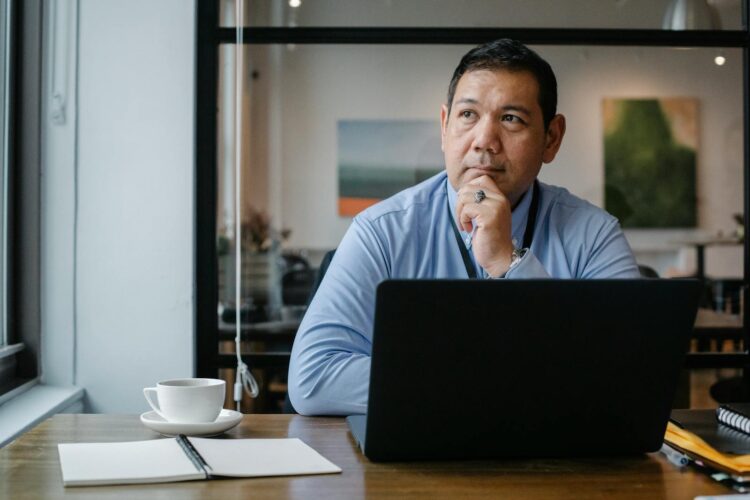
After every interaction, they replay it in their head. Did I say too much? Did I come across weird? Should I have smiled more? It doesn’t matter how small the moment—they fixate on it like it’s proof they messed up. Insecurity doesn’t let moments pass quietly. It latches on, twisting harmless conversations into imagined rejection.
They avoid photos or videos.

You’ll rarely find them jumping in front of the camera. When they do, they critique every angle, every expression, every flaw no one else noticed. Pictures aren’t memories to them—they’re reminders of everything they don’t like about themselves. Even when others compliment how they look, it rarely lands. They’ve already zoomed in and found something to hate.
They latch onto emotionally unavailable people.

Insecurity creates strange attachments. People who withhold affection, stay distant, or leave them guessing feel oddly familiar. It becomes a game they think they need to win: “If I can just get this person to love me, maybe I’m finally enough.” They confuse intensity with intimacy, not realizing they’re drawn to relationships that echo the very doubts they’re trying to escape.
They self-sabotage just before things go well.

Right when something good is within reach, they pull back. Cancel the meeting. Ignore the message. Miss the deadline. It’s fear. Fear of failing. Fear of being exposed. Deep insecurity whispers that they’re not ready, not worthy, not capable. So rather than risk disappointment, they preempt it. That way, they stay in control, even if it costs them everything.
They hide their needs until they explode.

They don’t speak up when something bothers them. They let things slide. Stay quiet. Smile through it. But inside, resentment brews. Eventually, it bursts out in ways they regret—anger, withdrawal, tears they didn’t want to shed. They don’t want to be “too much,” so they suppress everything… until they can’t anymore. Then the cycle repeats, and the guilt comes back even stronger.

